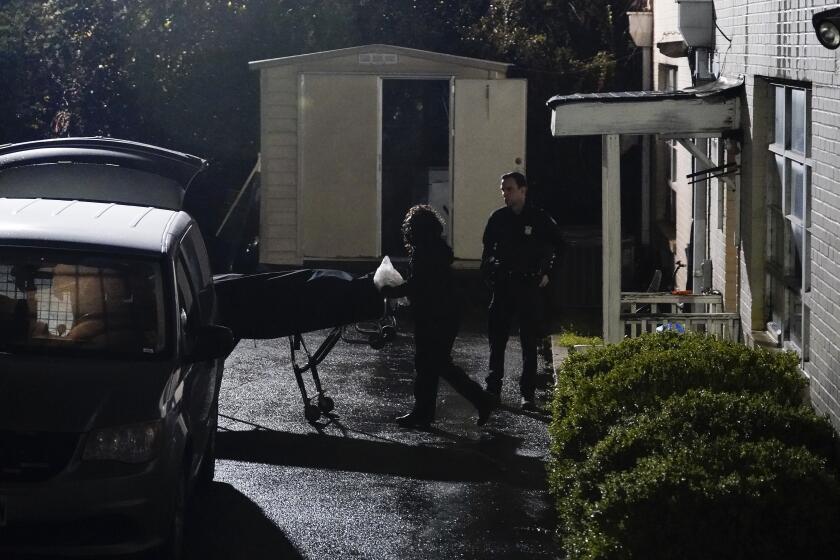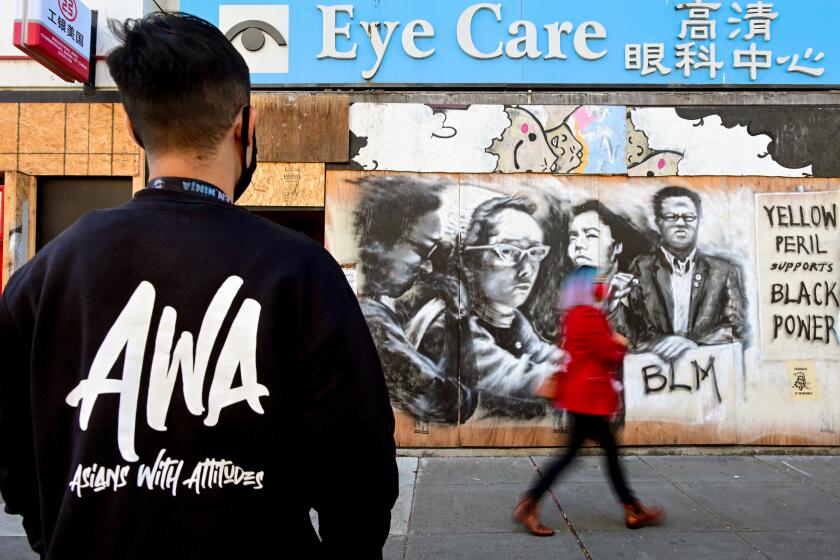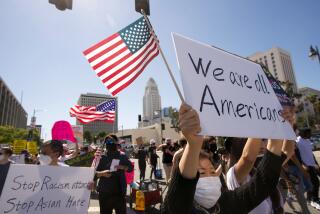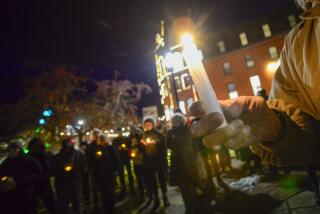Atlanta-area spa shootings place spotlight on hate crime laws
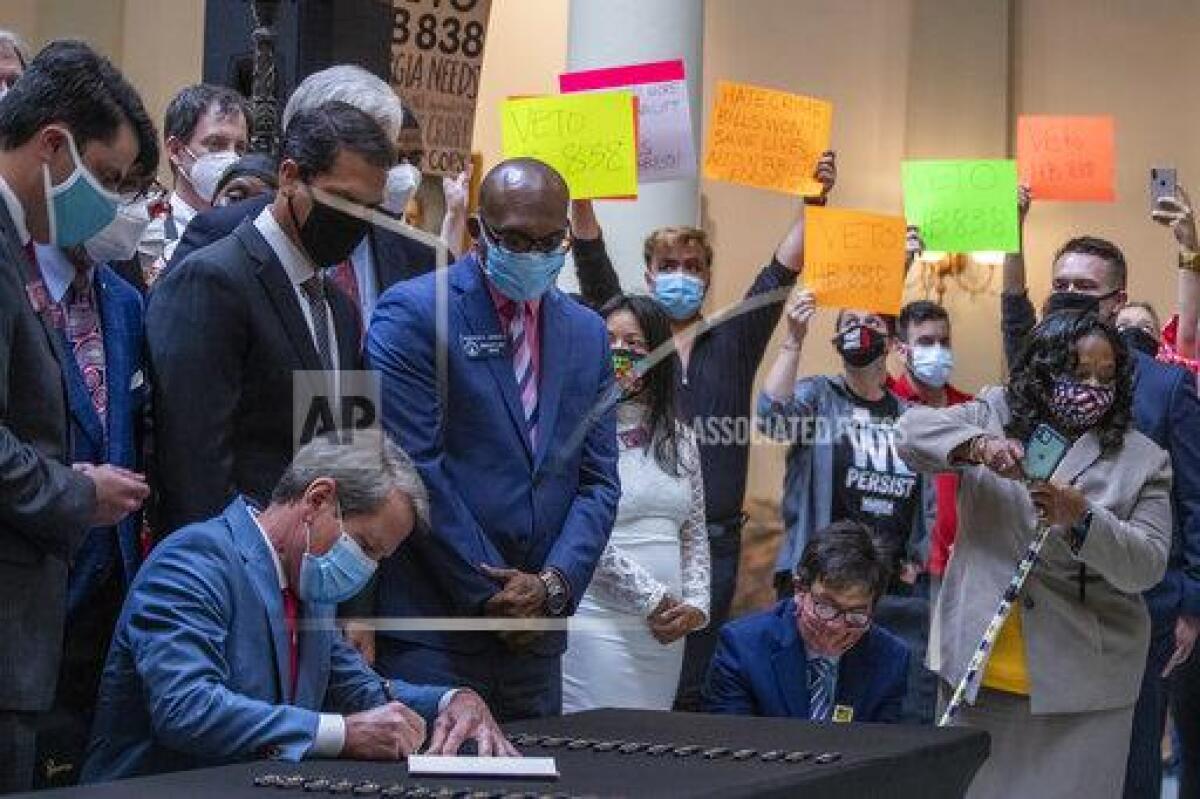
The year was 1871. Four million previously enslaved Americans had been freed after the Civil War. But that did little to convince tens of millions of white Americans that Black people deserved equal rights.
The Ku Klux Klan, founded six years earlier in Tennessee, was plotting ways to undo history, carrying out assassinations of Black leaders and spreading its message of white supremacy.
That April, President Ulysses S. Grant signed the Ku Klux Klan Act into law. It was among several laws at the time that led the federal government to arrest hundreds of Klan members and, in many cases, suspend their trial rights. The Reconstruction government dealt a severe blow to the racist militia. Yet it failed to stop it from popping up again over the next decades — including the modern day.
Although the phrase “hate crime” was not used 150 years ago, the Ku Klux Klan Act is widely considered the first hate crime law in the country for zeroing in on violent criminals who targeted people because of their race.
For many Asian Americans, the killings further fueled fears about anti-Asian hatred that has mounted over the last year as police and advocacy groups have reported record numbers of hate crimes and harassment.
Its shortcomings also point to a problem that still persists.
Today, laws exist on the federal level and in 47 states against attacks based on a growing list of factors that includes race, gender and religion. But national data tracking is haphazard and crimes regularly go unreported or without prosecution, according to Department of Justice and FBI reports.
The FBI defines a hate crime as a “criminal offense against a person or property motivated in whole or in part by an offender’s bias against a race, religion, disability, sexual orientation, ethnicity, gender or gender identity.” The bureau has released an annual report on hate crimes around the country since 1992, which is based on voluntary reporting from local law enforcement agencies. Although there are more than 15,000 such agencies in the country, less than 15% tend to report their hate crime data to the FBI each year.
Generally, a hate crime designation results in the possibility of additional penalties against a suspect.
The deadly Atlanta-area spa shootings this week have again raised questions about the complex history of hate crime laws and why, in many cases where attacks appear to be obvious bias crimes, police and prosecutors seem to move slowly in declaring racist or otherwise prejudicial motivations.
Robert Aaron Long, 21, was arrested and charged with multiple murder counts in the Tuesday shootings at three spas where eight people died, including six women of Asian descent. Police in Atlanta and Cherokee County, where the killings took place, said they would not rule out the possibility of anti-Asian racism. But police so far have said that Long, who is white, may have been taking revenge against people he wrongly perceived to be responsible for his “sex addiction.”
Here’s what we know about the victims in the attacks on three Atlanta-area spas that left eight people dead, including six women of Asian descent.
Authorities said that investigations into the Long case were ongoing and that nothing had been ruled out regarding possible charges.
Civil rights groups and Asian American activists are rallying around the victims and their families, with many calling for hate crime charges because they carry harsher penalties when prosecuted.
Activists also believe a hate crime designation will raise awareness around the prevalence of racist violence. The fact that the shootings came after a year of high-profile anti-Asian attacks around the country has added to the sense of urgency, they say, to prevent more violence. Rallies are planned in several states this weekend.
“We’re not going to police our way out of racism,” said Manjusha Kulkarni, co-founder of Stop AAPI Hate, a tracking group that has documented nearly 4,000 anti-Asian incidents of harassment, assault and shunning in the last year. AAPI stands for Asian Americans and Pacific Islanders. “At the same time, hate crime laws can help and the history shows they are unevenly legislated and applied when it comes to which groups you are looking at.”
Kulkarni said part of the blame falls to former President Trump, who made it a point to say “China virus,” “Wuhan virus” and “kung flu” in referring to COVID-19, which was first detected in Wuhan, China. Her organization’s tracker found many hate incidents in which perpetrators repeated phrases used by Trump when harassing or attacking Asian Americans.
Data from 16 major city police departments compiled by the Center for the Study of Hate and Extremism at Cal State San Bernardino showed 2020 to be one of the worst years on record for anti-Asian hate crimes even as hate crimes dropped overall. The research center found that anti-Asian hate crimes increased 149% year to year, from 49 in 2019 to 122 in 2020.
“The country has come a very long way in how it treats hate crimes,” said Brian Levin, director of the Cal State center. “But there is an enormous gap over history with what victims say about the crimes against them, what the law considers to be a hate crime and what is actually reported to and by law enforcement.”
It would take nearly a century after the anti-Klan law for the country’s next major hate crime bill to pass, this time as part of the Civil Rights Act of 1968. Tucked into the sweeping legislation were protections for people against discrimination and attacks because of race, religion or national origin.
As civil rights movements grew in the ’60 and ’70s and racial strife grew in response to school desegregation, states began to pass their own hate crime legislation. In 1978, Californians voted into law Proposition 7, which increased penalties for murder depending on the victim or motive, including a person’s race, religion, nationality or country of origin. A year later, Massachusetts passed the Massachusetts Civil Rights Act. Though the law did not mention categories such as race and religion, state authorities used it to prosecute what would now be known as hate crimes.
Other states followed over the years, with Georgia’s governor signing a hate crime law last year — one that imposed extra penalties for crimes motivated against a person’s race, religion, national origin, sex, sexual orientation, gender or disability. Today, Arkansas, South Carolina and Wyoming remain as states that do not have hate crime laws.
Activists in Wyoming have especially been dismayed because the state was where Matthew Shepard, a gay college student, was slain in 1998 in a case that drew national attention to anti-gay hatred. His death led many states to add sexual orientation to their hate crime statutes, and, in 2009, he was the namesake of an act President Obama signed to add sexual orientation, gender identity and disability to federal hate crime categories.
Even before the Atlanta-area spa attacks that killed eight people, including six women of Asian descent, volunteer groups have sprung up to defend their Asian American communities in California.
The growth in hate crime laws hasn’t necessarily amounted to increases in hate crime prosecution, said Michael German, a fellow at the Brennan Center for Justice.
“Most of these crimes are charged at the state level. But even considering that and the federal crimes, there are huge gaps between what is really going on in communities and what the criminal prosecution data shows,” he said. “On average, the Department of Justice only will prosecute maybe 25 defendants a year for hate crimes.”
A study last year from the Transactional Records Access Clearinghouse at Syracuse University found that state attorneys submitted more than 2,000 hate crimes to the federal government for prosecution over the last decade. But only 15% led to court cases.
German said prosecutors also run into the problem of proving a criminal’s motivation. If a perpetrator shouts a racist epithet or uses a racist symbol against a victim, the case is much easier to make.
Before the Georgia shootings, Asian American activists had rallied around a New York City incident in which a Yemeni American man stabbed a Chinese American man walking home in Chinatown. The attacker was charged with attempted murder but no hate crime in part because he did not say anything before the attack.
In the Atlanta-area shootings, police have not said whether the suspect, Long, had verbally singled out people of Asian descent or used racist language.
More to Read
Sign up for Essential California
The most important California stories and recommendations in your inbox every morning.
You may occasionally receive promotional content from the Los Angeles Times.

